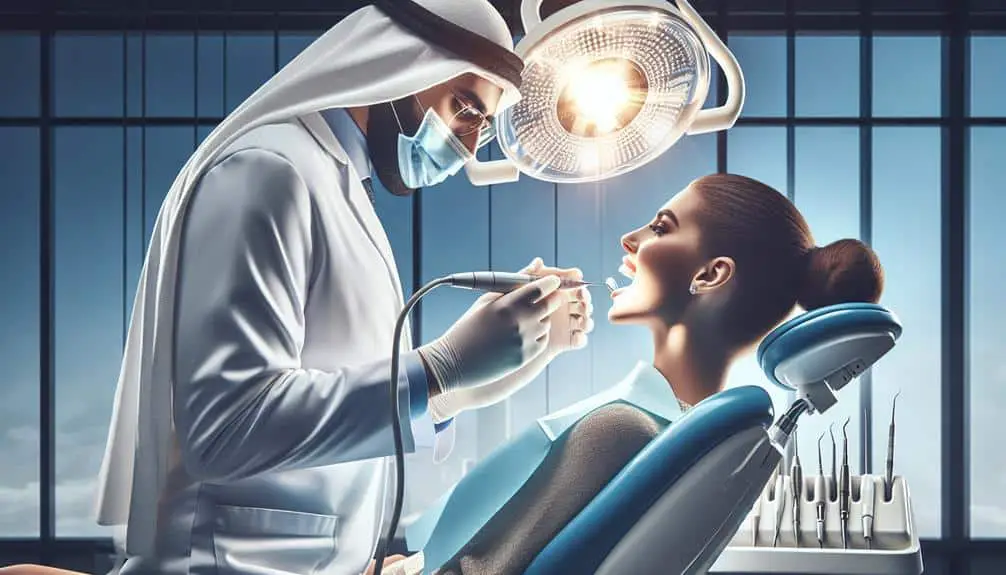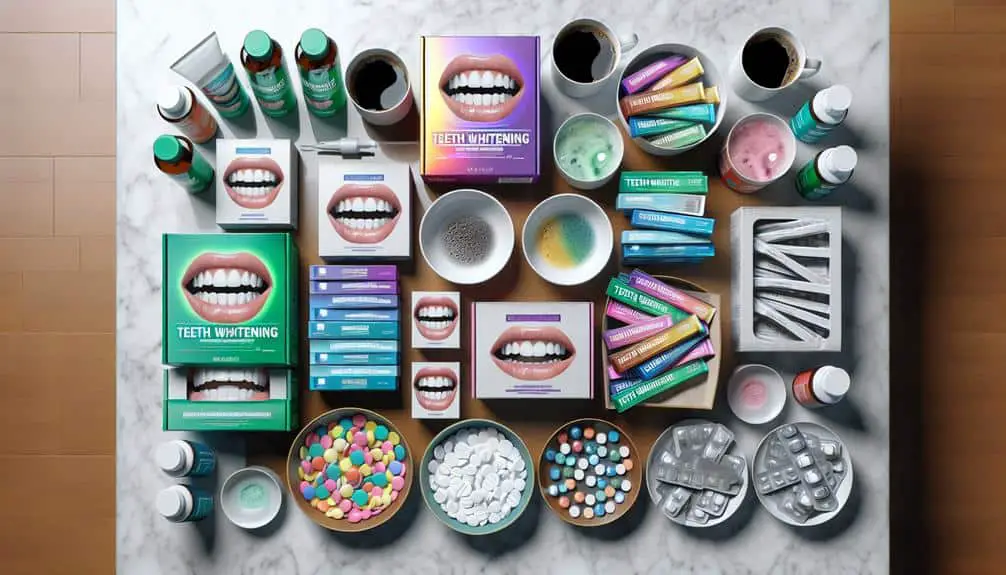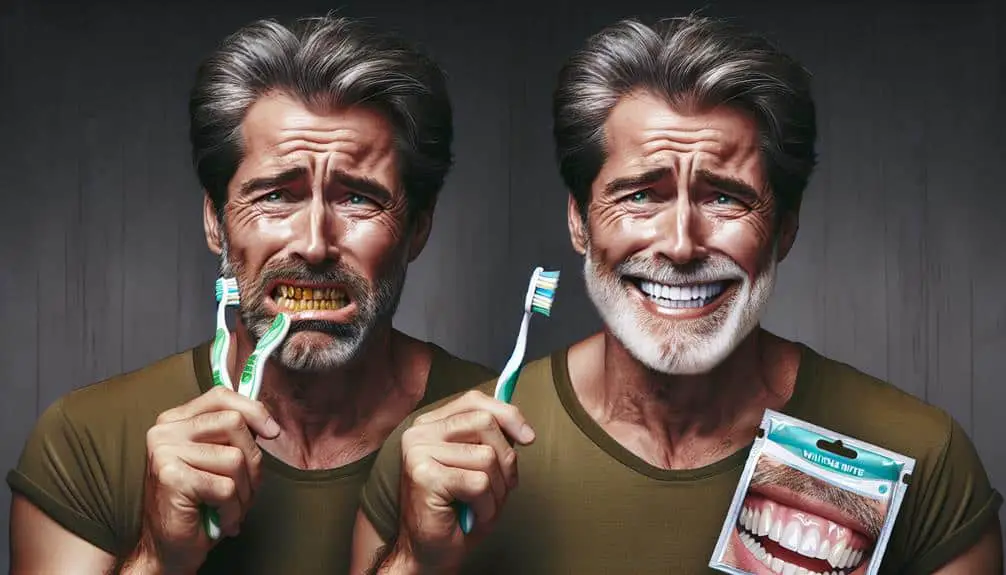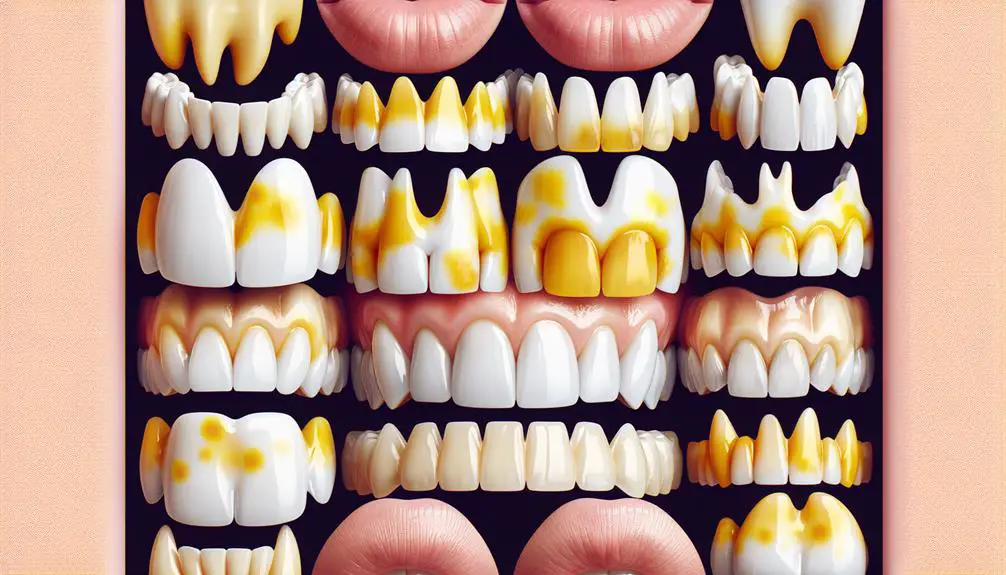When dealing with stubborn medication stains on your teeth, consider professional dental procedures. Options include laser treatment, veneers, whitening trays, and in-office whitening sessions. In-office whitening is conducted by dental professionals, ensuring quick and potent results using specialized equipment and stronger agents than OTC products. Custom take-home whitening kits provide precise application with custom-fit trays and professional-grade gel, along with personalized treatment plans and progress monitoring. Long-term maintenance involves proper oral hygiene, whitening touch-ups, dietary adjustments, and home remedies like oil pulling. Explore effective solutions to achieve a brighter smile.
Key Points
- In-Office Whitening: Utilizes strong whitening agents for quick results under professional supervision.
- Custom Take-Home Kits: Tailored trays with professional-grade gel for effective at-home treatment.
- Laser Treatment: Advanced technology to target and remove medication stains with precision.
- Veneers: Cosmetic option to cover severe stains for a long-lasting aesthetic solution.
- Combination Treatments: Customized plans that may include in-office sessions and at-home care for optimal results.
Understanding Medication Stains
If you have noticed discoloration on your teeth that may be caused by medication, understanding the nature of these stains is essential for effective treatment. The causes of medication stains on teeth are varied, with one common factor being the interaction between certain medications and the enamel of your teeth. Medications like tetracycline, used to treat bacterial infections, can lead to intrinsic stains which are harder to remove compared to extrinsic stains caused by external factors like food or drinks.
Prevention of medication stains involves proactive measures such as maintaining good oral hygiene practices like regular brushing, flossing, and dental check-ups. It's also advisable to avoid substances known to exacerbate staining, such as tobacco products and deeply pigmented beverages like coffee or red wine. If you're prescribed medications known to cause tooth discoloration, discussing potential alternatives with your healthcare provider may help in preventing these stains from occurring in the first place. Understanding the causes and taking preventative steps can go a long way in preserving the natural whiteness of your teeth.
Professional Whitening Options
Professional whitening options offered by dental professionals can effectively remove stubborn medication stains from your teeth, restoring a brighter, more vibrant smile. When considering professional whitening for medication stain removal, you may encounter the following options:
- Laser Treatment: This advanced procedure utilizes a special light to activate the whitening agent on your teeth, providing quick and efficient stain removal.
- Veneer Options: Dental veneers are custom-made shells that cover the front surface of your teeth, effectively concealing medication stains and giving you a flawless smile.
- Professional Whitening Trays: Customized trays filled with a whitening solution can be worn at home to gradually remove medication stains under the guidance of your dentist.
- In-Office Whitening Sessions: Dental professionals can perform in-office whitening procedures using powerful whitening agents to target and eliminate stubborn stains effectively.
- Combination Treatments: Some dental offices offer a combination of different whitening techniques to provide a tailored approach for each patient's unique medication stain situation.
In-Office Whitening Procedure
The in-office whitening procedure, conducted by dental professionals, utilizes powerful whitening agents to effectively target and eliminate stubborn medication stains on your teeth. This treatment is designed to provide quick results, allowing you to see a noticeable improvement in the color of your teeth in just one session. The whitening agents used in the procedure are stronger than those found in over-the-counter products, ensuring more efficient stain removal.
During the in-office whitening procedure, your dentist will carefully apply the whitening agents to your teeth, ensuring that all areas are adequately covered. Specialized equipment such as lights or lasers may be used to activate the whitening agents, further enhancing their effectiveness.
Custom Take-Home Whitening Kits
Utilizing custom take-home whitening kits allows for personalized teeth whitening treatment in the convenience of your own home, ensuring consistent and gradual improvement in the appearance of your teeth. These kits offer a professional approach to at-home whitening methods, providing effective results with proper and regular use. Here are some key points to take into account:
- Custom Fit: The trays are tailored to fit your teeth precisely, ensuring even distribution of the whitening gel.
- Whitening Gel Strength: The kits come with professional-grade whitening gel, offering stronger and more enduring results compared to over-the-counter products.
- Customized Treatment Plan: A dentist will provide specific instructions on how to use the kit based on your dental history and whitening goals.
- Monitoring Progress: Regular check-ins with your dentist allow for adjustments to the treatment plan for ideal results.
- Whitening Product Recommendations: Your dentist may suggest specific whitening products to complement the at-home kit for enhanced whitening effects.
Long-Term Maintenance Tips
For a lasting bright smile, maintaining proper oral hygiene practices and incorporating consistent whitening touch-ups are key components in ensuring the longevity of your teeth's newfound radiance. To enhance the effects of professional dental procedures for medication stain removal, consider making dietary adjustments. Limiting consumption of staining substances like coffee, tea, and red wine can help prevent new stains from forming. Additionally, incorporating crunchy fruits and vegetables like apples and carrots can naturally help clean and whiten teeth.
In conjunction with professional treatments, you can also explore home remedies to maintain the whiteness of your teeth. Brushing with baking soda once a week can gently scrub away surface stains. Oil pulling with coconut or sesame oil can also reduce bacteria in the mouth, promoting oral health and a brighter smile.
Frequently Asked Questions
Can Medication Stain Removal Procedures Affect the Overall Health of My Teeth and Gums?
When considering medication stain removal, prioritize oral health and safety. Professional procedures can enhance the aesthetics of your teeth while ensuring overall gum health. Consult with your dentist to address any concerns and maintain a healthy smile.
How Long Do the Results of Medication Stain Removal Procedures Typically Last?
For medication stain removal procedures, results typically last for a substantial period, but longevity relies on your upkeep. Follow up care, like regular dental cleanings, and maintenance tips such as proper oral hygiene are vital to preserving the effects.
Are There Any Potential Side Effects or Risks Associated With Professional Medication Stain Removal?
When contemplating professional medication stain removal, potential risks and side effects may vary. It's essential to consult with your dentist to understand the specific factors that could influence the longevity of results and any associated concerns.
Will My Dental Insurance Cover the Cost of Medication Stain Removal Procedures?
Understanding dental insurance for medication stain removal can be like solving a complex puzzle. Coverage varies, with some plans offering partial payment. Carefully review your policy to comprehend limitations and potential costs before proceeding.
Are There Any Alternative Treatments or Home Remedies for Medication Stains That I Can Try Before Opting for Professional Procedures?
Before opting for professional procedures, you can try natural remedies like baking soda or hydrogen peroxide for medication stains. DIY alternatives like oil pulling or activated charcoal may also be effective. Take precautions and research effectiveness.



